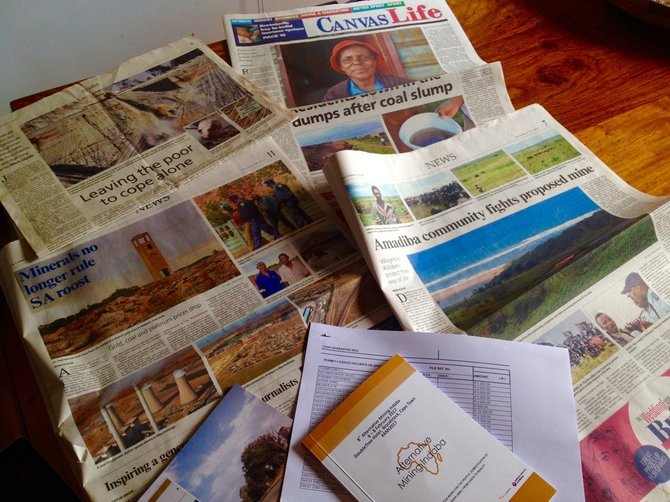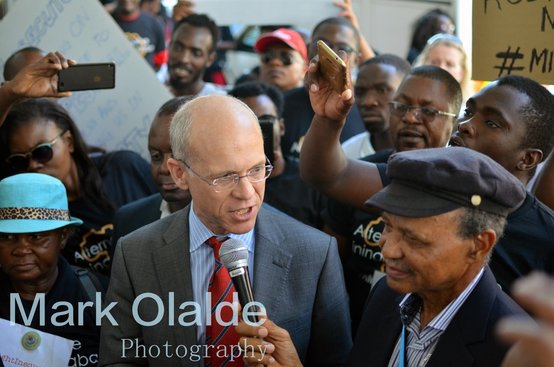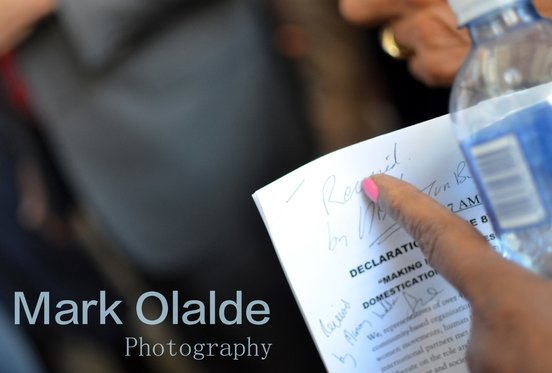Another third of the project has come and gone, with much of it dedicated to reporting longer investigations planned for the near future. Still, though, there was time for plenty of writing, a mini-documentary, a photo essay and a release of never-before-seen documents (that apparently made a splash in Parliament...). These stories have seen me off-road a VW Polo, an Audi A3 and a Toyota Corolla while out of the office and pester every province every week for documents while in the office. Here's what has come of all that so far....
The Star
www.iol.co.za/news/opinion/sas-failed-system-of-mine-closure-7117963
Is it possible for Mintails to properly close its operations near Johannesburg, and what does this say about mine closure across South Africa?
Saturday Star
http://www.iol.co.za/news/south-africa/eastern-cape/pics-amadiba-community-fights-proposed-mine-7312021
Since Sikhosiphi "Bazooka" Radebe was murdered, likely for opposing a proposed titanium mine, what has happened in the Amadiba community's fight against that mine on the Wild Coast?
http://www.iol.co.za/news/opinion/residents-down-in-the-dumps-after-coal-slump-7469365
How does the government relocate communities that are negatively impacted by nearby coal mines and coal-fired power stations?
http://www.iol.co.za/business-report/markets/commodities/pics-minerals-no-longer-rule-sa-roost-7541988
What does the Minerals-Energy Complex look like now, in photos (ignore the quality of some of them, weird editing for the paper wasn't updated for online)?
Oxpeckers Center for Investigative Environmental Journalism
http://oxpeckers.org/2016/12/mine-closures-whats-happening-in-your-back-yard/
What do previously hidden documents related to mine closure reveal, and is Central Rand Gold's operation near downtown Johannesburg illegal?
http://oxpeckers.org/2017/02/ministers-sign-secret-deal/
Now that the ministers of the Department of Environmental Affairs and the Department of Mineral Resources have signed off on coal mining in a legally protected environment, what does this mean for conservation efforts?
Inter Press Service
http://www.ipsnews.net/2016/11/phosphate-mining-firms-set-sights-on-southern-africas-sea-floor/
Will seabed strip mining proceed in southern Africa and/or elsewhere in the world?
http://www.ipsnews.net/2016/12/bringing-south-africas-small-scale-miners-out-of-the-shadows/
What is the possibility for regulating artisanal and small-scale mining (ASM), and does this differ between "illegal" and "informal" ASM?
http://www.ipsnews.net/2017/02/alternative-mining-indaba-makes-its-voice-heard/
Will the 2017 version of the Alternative Mining Indaba finally lead to the industry listening to community grievances and implementing changes?
Reporting these stories and preparing those larger investigations took me across the country: to the AMI in Cape Town, to the largest zama zama operation I've ever seen in Welkom, to rural villages in Pondoland (i.e. no-road-goes-there rural), underground in abandoned coal mines in Mpumalanga and in a helicopter over the Central/West/Far West Rands for a photo and video shoot. As always, thanks for following along, and look out for some big things coming soon.
Sharp sharp,
Mark



 RSS Feed
RSS Feed
